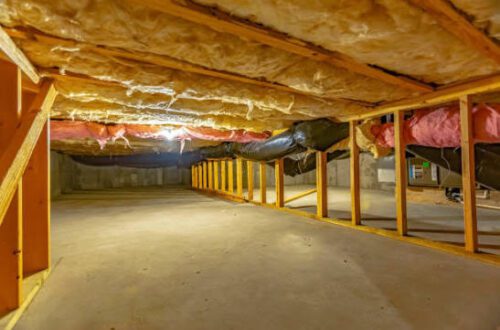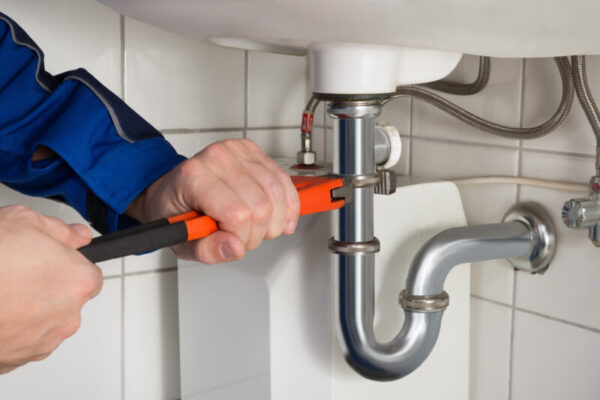Did you know the global doors market will generate $138.15 billion by 2029?
As the weather warms up, you look forward to opening windows and doors and letting in the fresh air. But with all that wonderful breeze comes bugs, leaves, and other unwanted debris.
That’s where a hinged screen door comes in. With so many new options on the market, is a hinged screen door still the best option for your home?
Below, we’ll explore the benefits of using them, look at some alternatives, and find out! Let’s dive in!
What are Hinged Screen Doors?
Hinged screen doors are exterior doors with a metal frame and mesh for screening various pests, such as flies and mosquitoes. The door can open and close by a hinged mechanism within the frame, allowing only particular sizes of particles to pass through the mesh.
A hinged screen door is often used to make an enclosed porch or patio area more accessible outdoors while keeping out unwanted bugs and critters. It is available in several materials and colors, making it easy to match the existing patio doors of your home.
Pros of Hinged Screen Doors
Hinged screen doors offer a host of advantages over other screen door types. Below are some of its pros:
Ease of Installation
Most hinged screen doors are simple to install with only standard tools. It allows people to install their hinged screen doors quickly without hiring extra help for installation.
Using the hinged design makes removing the door quick and efficient when needed for cleaning or repairs without taking apart the entire door structure. Hinged screen doors also allow for more effortless opening and closing of the door, with the ability to swing open and shut in just one easy motion.
Greater Security
Hinged screen doors can provide an added layer of security to any entryway. A simple hook and latch lock can be attached to make it difficult for children or animals to wander outdoors, while the tight fit of the door prevents any easily preventable drafts. The locks also make it harder for intruders to enter your home.
Improved Durability
Hinged screen doors are more durable than their sliding counterparts. With a hinged design, the door will not have to be slid along a track or rely on a sliding mechanism. As the door opens, it simply pivots on hinges making it far less prone to wear and tear. Furthermore, powered hinges are available for those wanting an even higher quality option.
Affordable Cost
Their cost is low mainly because they are made of simple materials such as wood and metal, which are relatively affordable. Hinged screen doors are easy to install and maintain independently, significantly reducing the associated installation and maintenance costs. Lastly, they do not require a separate entry door which you can keep their price at a minimum.
Easy to Repair if Needed
Hinged screen doors are much easier to repair than sliding screen doors. If a hinge cracks, becomes loose, or otherwise breaks, replacing the broken parts is a simple and affordable process. It sets them apart from sliding doors, which require the replacement of more costly parts to repair.
Cons of Hinged Screen Doors
Hinged screen doors can cause several issues in homes. Primarily, they can be noisy when opened and closed, bothering those inside and potentially those in adjacent dwellings. They can also be challenging to open and close for young or elderly residents. Additionally, these doors can wear down over time; corrosion of metal parts may occur if not given proper maintenance, which can be expensive as these components may need to be replaced every couple of years.
The material used for these doors is prone to fading over time, meaning they may need to be replaced sooner than expected. Finally, hinged screen doors take up considerable space, so anyone with limited space should carefully consider the trade-off before purchasing.
Alternatives to the Hinged Screen Door
Alternatives to a hinged screen door can be beneficial. They can provide convenience to your home or office while also allowing you to maintain a source of ventilation and light.
The choice of door for your home or office depends on your preferences and budget, but these alternatives can provide an attractive and convenient option for any home. Here are some alternatives to hinged screen doors:
Retractable Screen Doors
The retractable door rolls up and down into a cassette unit and has a spring-loaded mechanism to automatically move back into place when the entrance is opened and closed. This type of door is advantageous because it is easier to open and close, as it comes with a specialized handle that allows the door to be opened with a single gesture. In addition, they are more aesthetically pleasing compared to the hinged variety, giving the entrance a more modern look.
The cons of retractable screen doors are that depending on the type and quality, the tracks and screens may become dust collectors and be challenging to keep clean. Installation costs could be higher due to the complexity of fitting the doors in the way. Depending on the age of a home, you may need modifications for proper installation, which may add to cost or time expectations.
This type of door is ideal for those interested in convenience, space-saving, and aesthetic advantages and willing to invest in installation and upkeep. So if you are considering this type of screen door, check this page for more details.
Sliding Screen Doors
Sliding screen doors are composed of a frame made from metal or wood and a screen made of aluminum or fiberglass that you can open and close, allowing natural ventilation, light, and air to flow. They stay in place when opened and can be securely locked when closed.
Sliding screen doors are an ideal solution for spaces that may not have enough room for a traditional swinging door. They can create temporary barriers, such as windbreaks during cold months.
Sliding screen doors are an excellent choice for homeowners looking for an open design’s convenience without keeping out bugs and other unwanted guests. Their sleek design eliminates the need for bulky door frames and takes up minimal space. They are also flexible, allowing you to open just one door or both depending on your needs.
However, the main disadvantage of sliding screen doors is that they are not as secure as standard hinged doors, as the door can be left unlocked and potentially expose the home to unwanted guests. Furthermore, sliding screen doors don’t have a locking mechanism, and the glide mechanism can occasionally become sluggish or difficult to operate.
Security Screen Doors
Security screen door designs are made from more robust, more durable materials. It includes steel mesh panels and woven mesh fabric and features reinforced frames that can handle high force and pressure from outside sources. The mesh panels can also be tinted or treated to provide extra privacy and security benefits.
These doors provide many features that make them more secure than typical hinged screen doors. It includes reinforced frames and locking mechanisms, which secure the door shut. It prevents the intruder from getting access to the interior of your home.
Besides, they are weatherproof and can handle harsher outdoor conditions such as wind, rain, and snow. Some of these doors include a pet door, allowing pets to go in and out without you having to open the door.
Cons of security screen doors include decreased visibility and occasionally aesthetic concerns. The mesh can lead to an obstructed view from the inside, making it difficult to see out of the door.
These doors sometimes look bulky and industrial, detracting from the home’s style. You must consider proper installation and thoughtful design to ensure these doors offer the desired aesthetic.
Magnetic Screen Doors
The magnetic screen doors feature an adjustable closure system consisting of heavy-duty magnets. They are also an economical option and can be much easier to install. They often come with all the necessary hardware and installation instructions.
The convenience of walking through the screen door without opening it makes them an excellent choice for busy homes with young children and pets. Moreover, magnetic screen doors are much lighter and easier to transport. It makes them more practical for temporary and seasonal use.
Yet, magnetic screen doors provide extra durability and security than hinged doors. Another downside, because the closure is dependent upon magnets, it is possible for the wind to blow a magnetic screen door open, whereas a hinged screen is more secure. Lastly, because it is held on by magnets, shifting or sagging within the frame is expected.
Consider This Hinged Screen Door Guide
A hinged screen door is an excellent option for your home because of its convenience, aesthetic qualities, and affordability. Yet, there are alternative screen doors to consider, including retractable, sliding, security, and magnetic screen doors.
It is vital to evaluate the pros and cons of all options to make the best decision when choosing the right screen door. Visit your local retailer to explore the possibilities!
Was this helpful? If so, please keep reading for more home improvement tips.






